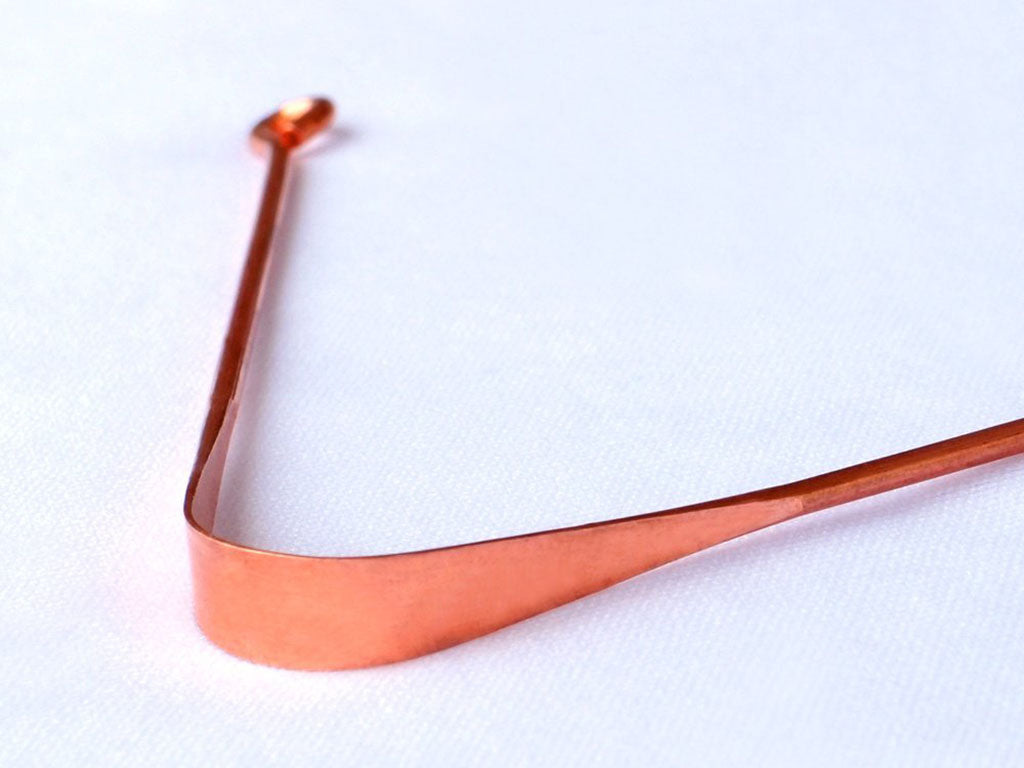
Why copper?
Ayurvedic literature recommends tongue scrapers being made from copper, silver, gold, tin or brass due to their antimicrobial properties. Copper has been used for its health benefits in many ancient cultures. Egyptian and Babylonian soldiers were known to apply bronze (an alloy of copper and tin) fillings on their wounds after a battle to reduce infection and speed healing. Copper was also used in ancient China to cure certain medical problems. The Greeks and Aztecs used copper oxide and copper carbonate, combined with olive paste and honey, to treat skin infections. Today copper and its alloys such as brass and bronze are widely used in hospitals. Even some vineyards have been known to apply copper sulphate to vines to prevent fungal attacks.Other pure metals such as silver require moisture in order to exhibit antibacterial properties, while bacteria easily multiply on more commonly used alloys such as steel and stainless steel.
Copper is amazingly antimicrobial
Research now details how copper and its alloys exhibit these antimicrobial properties. A copper surface releases copper ions (electrically charged particles) whenever microbes come into contact. The ions punch holes in the bacterial cell membrane and then go on to destroy the DNA and RNA inside. This latter property is important as it means that no mutation can occur – the microbe cannot develop a resistance to copper. Amidst global concern over the growing antibiotic resistance of microbes, copper and its alloys are a godsend. Copper alloys can kill superbugs, including MRSA and those from the notorious ESKAPE group of pathogens – the leading cause of hospital-acquired infections.Many common viruses have no vaccine available, while others, such as influenza, mutate so rapidly that it is difficult for vaccines to keep up. Copper surfaces, however, do not discriminate and wipe them out regardless. Studies in three hospital intensive care units in the US also showed a remarkable 58% reduction in infection rates. It is no surprise that copper alloy surfaces are now being deployed worldwide in airports, trains, train stations, buses, restaurant kitchens and gyms. The new Francis Crick Institute in London is kitted out in copper alloys, supporting its foresight and vision as a world-leading research centre for the public good. But perhaps nobody showed as much foresight and vision as the ancient practitioners of Ayurveda in India who recommended that tongue scrapers be made from copper and its various alloys.



